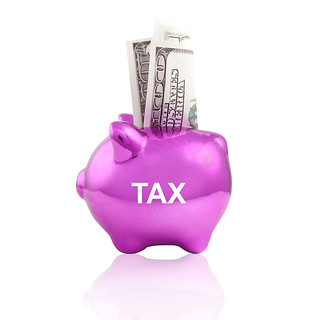 Any retailer selling to a resident in the same state as their online store already has to pay sales tax, but with the Marketplace Fairness Act (voted into law on May 6, 2013) it would also require online retailers to charge buyers and pay sales taxes for online purchases.
Any retailer selling to a resident in the same state as their online store already has to pay sales tax, but with the Marketplace Fairness Act (voted into law on May 6, 2013) it would also require online retailers to charge buyers and pay sales taxes for online purchases.
How does the new law affect your ecommerce store? For most, it won’t be an issue but for some, there are some steps you must take and the Marketplace Fairness Act also requires states to get onboard with some new rules and regulations to make the Act easier for online retailers.
What the $1 Million Limit Means
Right now, the Act only covers stores who sell more than $1 million per year—and these stores must also have a brick and mortar location—store, warehouse, etc. For most, the Act won’t be much of a problem but at OC Designs Online, we know many of our clients have succeeded in selling online and some are close to the $1 million dollar mark or have passed it and also have brick and mortar locations.
Still, states have to partake it making things easy for these ecommerce retailers.
State Responsibilities
According to the Ecommerce Times, there are five rules states must implement to abide by the Marketplace Fairness Act:
- States must notify retailers of any rate (tax) changes in advance of the rate increase.
- All states must set up a department or organization dedicated specifically for ecommerce tax collection, questions and inquires.
- Each state must determine a uniform tax that online retailers will charge buyers. This will be much easier than attempting to determine tax rates per county or city.
- Calculate the tax based on the buyer’s home state and ensure collected tax is remitted to the proper state.
- Provide a free software program for online retailers to sign up, report and pay collected sales taxes. The software program must also hold retailers harmless against liability due to internal software errors.
How to Stay Compliant
 Two of the main reasons brick and mortar stores with employees go out of business are:
Two of the main reasons brick and mortar stores with employees go out of business are:
- Collecting but not paying state sales tax
- Not paying employee 941 employment taxes
What usually happens in these failures to pay taxes once collected is the business finds it has other bills to pay like rent, loans or vendors and instead of paying tax agencies, they pay others thinking they can “catch up.”
This is known as robbing Peter to pay Paul and it’s not a good idea, especially for ecommerce retailers who must now comply by the Marketplace Fairness Act. Why? Penalties and interest which can quickly double, triple and quadruple before you know it—and often become more than the tax liability.
If you must comply, make sure you don’t spend sales tax dollars collected. The required state software programs will most likely require ecommerce retailers to pay monthly or quarterly based on sales revenues and don’t forget, there will probably be exempt sales—or sales to another retailer where the tax won’t apply.
 Start making plans to:
Start making plans to:
- Contact your ecommerce platform provider and ask them to keep you abreast of when the new rules and regulations will start—or keep reading resources like Ecommerce Times. You can also call your state’s Sales and Use Tax Department for more information.
- Enroll in the program as soon as it becomes available. You will most likely have to offer the address of your warehouse or brick and mortar store and will be assigned a dedicated tax ID number.
- Learn the software as soon as its available and pay when taxes are due. Due to the requirement of state’s having to provide software, retailers will probably be able to pay taxes electronically.
- If you fear spending collected tax, open a separate bank account dedicated to collected sales tax only and use it to pay taxes when due.
- Find out about exempt sales. For example, if you sell jewelry in Maine and a Pennsylvania seller wants to buy a bulk of rings from you to resell in their ecommerce store, it will be the PA retailer who pays the sales tax once the rings are sold—not you—this is considered a wholesale transaction.
Here at OC Designs Online, we’ll keep track of the Marketplace Fairness Act and its implementation date and tips on how to comply so stay tuned. For most this Act won’t be an issue but for those that must pay, non-compliance could mean an audit and large penalties and interest.
What do you think about this new Act? Check out the video comments from eBay CEO John Donahue on CNN Money.

